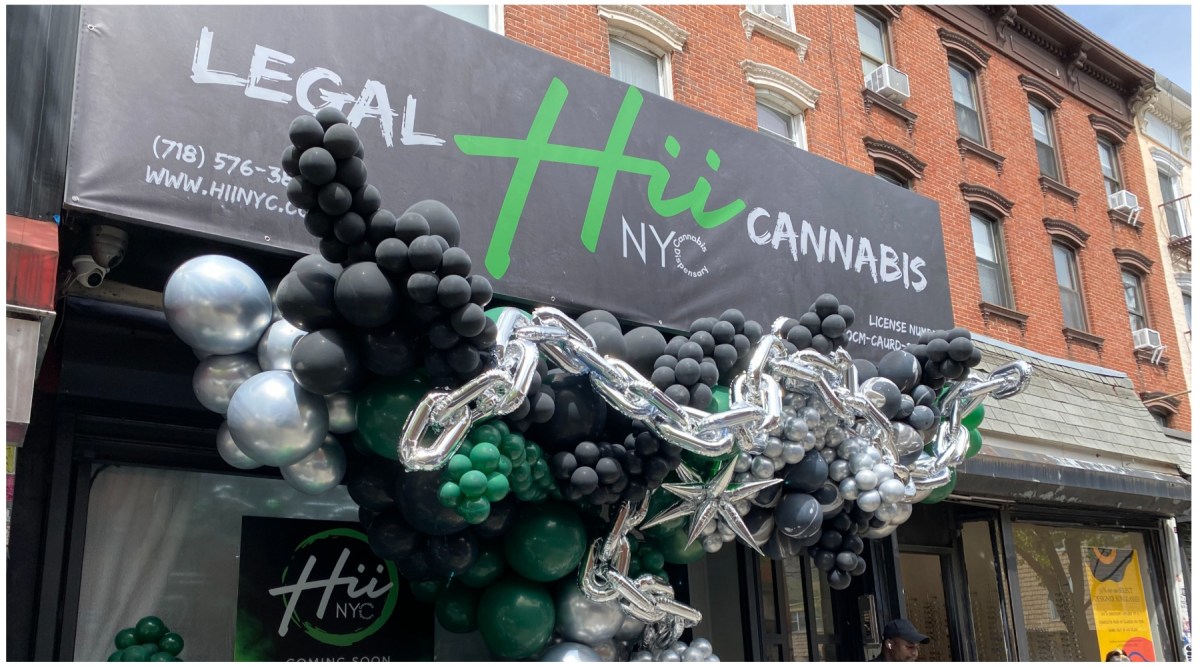Nuyoricans and Boricuas living in NYC are angry and distraught at the financial crisis devouring their beloved Puerto Rico.
And their heartbreak is complicated by their belief that the mainland they now call home has exploited and inflicted staggering hardships on the island they love.
On Wednesday, Puerto Rico’s governor declared a state of emergency for the territory’s highway authority, following an earlier declaration of a state of emergency for the Government Development Bank as a result of the island’s inability to make payments on its $70 billion bond debt.
It recently defaulted on a $367 million principal payment and Gov. Garcia Padilla has said it will not be able to make a July 1 payment of $1.9 billion.
President Barack Obama has called on Congress to put the island’s finances under federal oversight while legislating a mechanism to restructure the debt but a bill aimed at achieving those goals has stalled in the Republican-led Natural Resources Committee.
Puerto Rico’s crisis has resulted in mass layoffs and a 45% poverty rate, a hemorrhage of young people and professionals fleeing the island, an erosion of infrastructure and public services, and a seemingly bottomless, anguishing economic free fall that reverberates in the barrios of NYC.
“It hurts me,” said Billy Carrion, 65, a salsero and city agency supervisor who lives in West New York, N.J. “Our own city pensions have a lot of money in these (Puerto Rican) bonds. I’m very sad (the U.S. government) does not acknowledge the big problem is the predatory lending,” that occurred without due diligence, Carrion said.
At least 150 Puerto Rican schools have been shuttered, medical and other essential services are under rationing and strain and water and electrical service is often spotty in the outlying areas.
“Everybody in P.R. – every adolescent – has a gun” because crime – and the fear of it – is rampant, added Carrion. The value of his family home in Mayaguez, which he and his siblings would like to sell, has declined by almost 50%, he said.
When Jose Morales, 19, an NYU student living in Williamsburg, talks with his family about what is facing the island, “it’s a conversation of hopelessness,” he said somberly.
About 740,000 New Yorkers identify as Puerto Rican, and many visit frequently. They are shocked by the reversal of fortunes for people living outside of tourist meccas such as San Juan.
“It’s like Puerto Rico is up for sale, like a giant garage sale,” said Angelo Falcon, 65, president of the National Institute for Latino Policy who lives in Williamsburg.
“Right now the feeling is more sadness than anything else – and trying to figure out what role Puerto Ricans in the diaspora can play,” to help, Falcon said. New Yorkers are besieged with phone calls asking about job possibilities here, though most islanders opt to relocate to Florida, he noted.
“There’s no energy! Lots of closed storefronts – they’re not selling anything! What I notice is all the casinos, the hopelessness and poverty. . . . People are desperate,” and living off credit cards because they lack cash, said Ariel DeJesus, 41, a commercial cleaner with SEIU32BJ who lives in Flatbush.
DeJesus spoke to amNewYork from San German, where he had gone to visit his mother, who has had trouble obtaining health care services. “I can’t believe how the U.S. has left my island out to dry like this,” said DeJesus.
Another SEIU32BJ worker, Felix Betancourt, 65, a super on the Upper West Side whose brother in Bayamon is thinking of selling his medical supply business (his customers can’t pay their bills), is similarly rueful.
Betancourt feels powerless and frustrated. All he can do for his brother “is listen to him, talk to him, and give him advice,” he explained through an interpreter. As with the mortgage crisis, Betancourt noted, profits from the bond sales were privatized “but the losses are socialized.”
Many, while acknowledging that corruption on the island is part of the problem, blame the U.S. and Wall Street for treating Puerto Rico as a place to plundered for profit and treating islanders as inferior, second class citizens.
“I don’t know if a full bail out is appropriate, but there needs to be some form of assistance or a plan for financial stability,” said Morales.
“The U.S. needs to take responsibility for the legislation it passed removing the tax credits for Puerto Rico and prohibiting it from filing bankruptcy,” placing the rights of bondholders above those of the Puerto Rican people, Morales said.
Carrion wants the FBI and CIA to investigate into where all the money went, noting that vulture investors had worked with partners on the island.
Falcon advocates legal changes to permit bankruptcy protections. And because Puerto Ricans here can vote in the presidential election (those on the island cannot), he wants the issue featured in debates and more help from U.S. politicians.
“We get our cultural sustenance from the island and there’s a real melancholy now,” Falcon said, adding, “The fear is that maybe this is the end of Puerto Rico as we know it.” — with Reuters

















